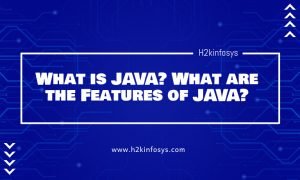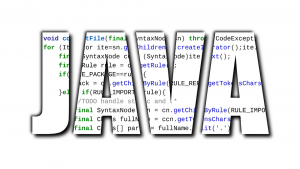Since its creation, Java has distinguished itself as a leading programming language, thanks to its rich feature set, which outperforms that of languages such as C++. The introduction of object-oriented programming (OOP) was a watershed moment for Java, distinguishing it from its peers. Java’s approach to reusability and smooth execution was groundbreaking, having been built around OOP.
Objects in Java encompass comparable functions and variables to structures in C, but they are elevated thanks to Java’s capability for abstraction, encapsulation, inheritance, and polymorphism. These features not only encourage the usage of objects, but are also critical to Java’s effectiveness across other domains.
Java’s dominance in application development, web development, and tool creation is unmistakable. Its broad library ecosystem, as well as support for integrated development environments (IDEs) like Eclipse, IntelliJ, and NetBeans, have contributed to the success of many Java developers. Check out our online Java course to learn more.
What is a Platform?
A platform is a combination of hardware and software used to run computer programs. It includes the operating system, hardware architecture, and different software components that serve as a platform for application execution. diverse platforms may have diverse hardware architectures, operating systems, and software configurations. Each platform could have its own collection of libraries, APIs, and system resources.
What is a Platform Independent language?
Platform-Independent Language (PIL) is a programming language that is meant to be executable on multiple systems without requiring significant code changes. In other words, applications written in a platform-independent language can run on multiple platforms without requiring major modifications or adaptations. Java is a very good example of a platform-independent language. It provides platform independence via the Java Virtual Machine (JVM).
Platform-independent languages, such as Java, provide various advantages. Some of them are:-
Portability
Programs can be created once and run on various platforms, decreasing development time and maintenance.
Reduced Compatibility Issues
Because the JVM manages platform-specific details, developers do not need to be concerned about low-level platform variations.
Cost Savings
Creating individual application versions for each platform can be time-consuming and expensive. A platform-independent language can help to decrease these costs.
Consistency
The program’s behaviour is consistent across platforms, resulting in a predictable user experience.
How does a program execute in Java?
A Java program is run through a sequence of phases, including compilation and execution by the Java Virtual Machine (JVM). Here’s a high-level summary of how a Java program is executed:
Writing Java Code
You begin by typing Java code into a text editor or an Integrated Development Environment (IDE).
Compilation
Once you’ve written your Java code, save it with the.java extension. To run the code, compile it into bytecode, which is a platform-independent intermediate representation. To build your.java files, run the Javac command (Java Compiler). Compilation creates.class files containing bytecode.
Bytecode Generation
During compilation, the Java compiler converts your human-readable source code into bytecode instructions that reflect the actions your program should take.
Class loading
The Java Class Loader subsystem is used for loading the compiled.class files. When classes are accessed for the first time, the Class Loader loads them into memory. The class loading process also includes loading referenced classes.
Bytecode Verification
Before executing the bytecode, the JVM verifies that it is well-formed and does not breach any security requirements. This helps to avoid runtime problems and security issues.
Execution
The JVM’s execution engine goes through the bytecode instructions one by one. It employs Just-In-Time (JIT) compilation techniques to turn some or all of the bytecode into native machine code for the particular platform on which the program is running. This increases execution speed.
Runtime
While the program is running, the JVM maintains memory, thread execution, and other runtime features. It also supports a variety of runtime services, such as garbage collection and memory management.
Execution Completion or Termination
The program continues to run until the main method is completed or an explicit termination condition is satisfied. Once the program has completed its execution, the JVM executes any necessary cleanup activities before terminating.
It is vital to understand that Java’s platform independence is achieved through the JVM.
Java is platform independent!
What happens when you compile code in Java? When you type “javac filename.java” or compile a code in Java, javac compiles it. It also generates ByteCode, which is an intermediate format. Bytecode offers the key attribute of independence/portability to Java because it is platform-independent. This dependency simplifies activities because it can be utilised in a variety of situations with minimal planning and translation. Here is where Java distinguishes itself from other programming languages. It generates a.class file, which is interpreted as byte code.
Languages such as C/C++, on the other hand, generate natively executable code when built, rendering them platform dependent. Hold on, it’s too early to celebrate. This byte code is not executable. We need a translator to run this byte code. JVM performs this function. Generally, JVM is stored in our computer’s main memory. The Java Virtual Machine operates as an interpreter, executing the byte code generated by javac.
Conclusion
There are still many other concepts involved in Java as a platform independent language. To learn more about Java, enroll today in our Java training.


























